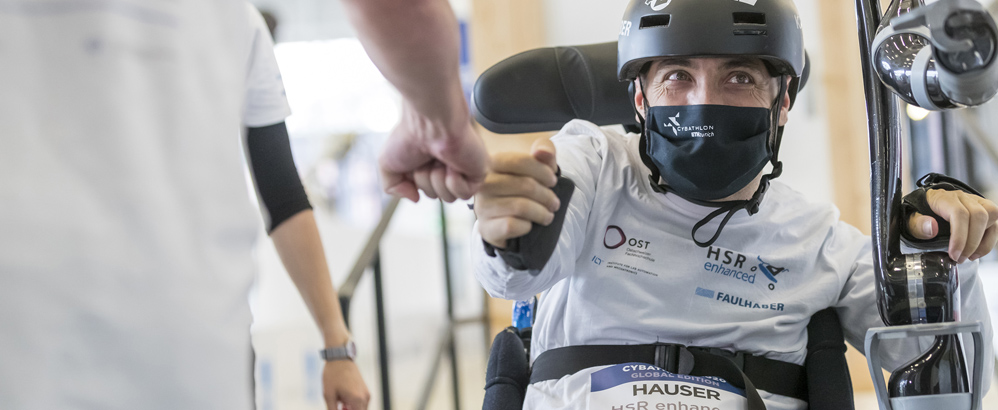The Cybathlon 2020, organized by the Swiss Federal Institute of Technology (ETH) for the second time after the first event in 2016, ended on Saturday. According to a press release from the ETH, 51 teams from 20 countries took part in the competition. The aim is not only to raise awareness for people with disabilities but also to promote global synergies “to further the current state of technology and promote inclusion”. The six winners included two Swiss teams. Overall, Switzerland sent ten teams into the running across the six disciplines. Five of these were linked to ETH Zurich.
Due to the pandemic, the teams were unable to travel to Switzerland as was possible the first time this competition was held. For this reason, the competition was broadcast via livestream for two days and translated into seven languages. Each team had to create its own spatial and technological requirements for this, which included a course for motorized wheelchairs, arm and leg prostheses, virtual running using mind control or cycling with electrical muscle stimulation. Two locations in Switzerland were used for this: At the ETH Hönggerberg campus and at the Swiss Federal Institute of Technology Lausanne.
Overall, 70 people were involved in the planning and execution of the Cybathlon 2020. Roland Sigrist, the Cybathlon’s Executive Director, states: “We are proud of how we managed to quickly find a suitable platform for hosting the Cybathlon for all the participants, allowing them to demonstrate their skills and technological advancements.”
Joël Mesot, President of ETH Zurich, is quoted in the press release, saying: “Universities have social responsibilities. Technology should serve people – not the other way around. The Cybathlon is a particularly impressive example of how humans and technology can create unity.” The next Cybathlon in 2024 will be organized by ETH Zurich as well.
Florian Hauser from the Swiss team “HSR enhanced” from the University of Applied Sciences Rapperswil was among the winners in the agility course for powered wheelchairs as he had been at the Cybathlon 2016. Project Circleg celebrated a win too. It was formed in 2018 as a study project for industrial design at Zurich University of the Arts and is now an award-winning start-up. The other winners came from Croatia (arm protheses), The Netherlands (electrical muscle stimulation ), South Korea (robotic exoskeleton), and Italy (mind control).
Related news
Meet with an expansion expert
Our services are free of charge and include:
- Introduction to key contacts in industry, academia, and government
- Advice on regulatory framework, taxes, labor, market, and setting up a company
- Custom-made fact-finding visits, including office and co-working space
